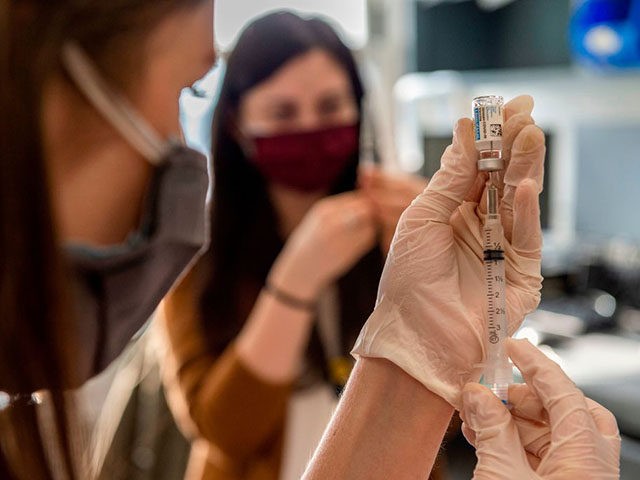The Food and Drug Administration (FDA) is questioning the evidence provided by Johnson & Johnson in its application for authorization of its coronavirus booster shot, according to a document released prior to the October 15 meeting with FDA vaccine advisers.
The document shows the FDA questioning the “strength of evidence Johnson & Johnson provided in its application for booster shots,” according to the New York Times. The agency suggests a primary test used by the company was “likely not sensitive enough”:
But on Wednesday, the F.D.A. said that the test used by the company to measure the immune response of a six-month-boost — known as a psVNA assay — is not sensitive enough for the task. The agency also questioned whether the increase in immune response was as big as the data suggested.“It is likely that the results seen are due to the low sensitivity of the psVNA assay used,” the F.D.A. stated in its report.The F.D.A. saw a potential improvement in protection from a J. & J. booster given two months after the first shot, based on a large trial sponsored by the company.
Additionally, the FDA suggested it did not have sufficient tine to review the data.
Earlier this week, Johnson & Johnson released a memo arguing in favor of booster shots. The memo said:
Based on the recent data, it can be assumed that the administration of the booster dose will result in increased protection against symptomatic infection, increased strength and breadth of immune responses against current variants, and increase of the magnitude of protection against severe disease across populations.
“The booster dose can also increase the probability of protection against future variants of concern,” it continued:
A booster dose is recommended at 6 months or later, based on the strength of the immune responses, although a booster dose may be administered as early as 2 months. The need for a booster dose and/or its timing will depend on the local/epidemiological situation and the needs of individuals/specific populations.
Currently, the FDA has only approved Pfizer’s booster shot for seniors, high-risk individuals, and certain frontline workers.

COMMENTS
Please let us know if you're having issues with commenting.